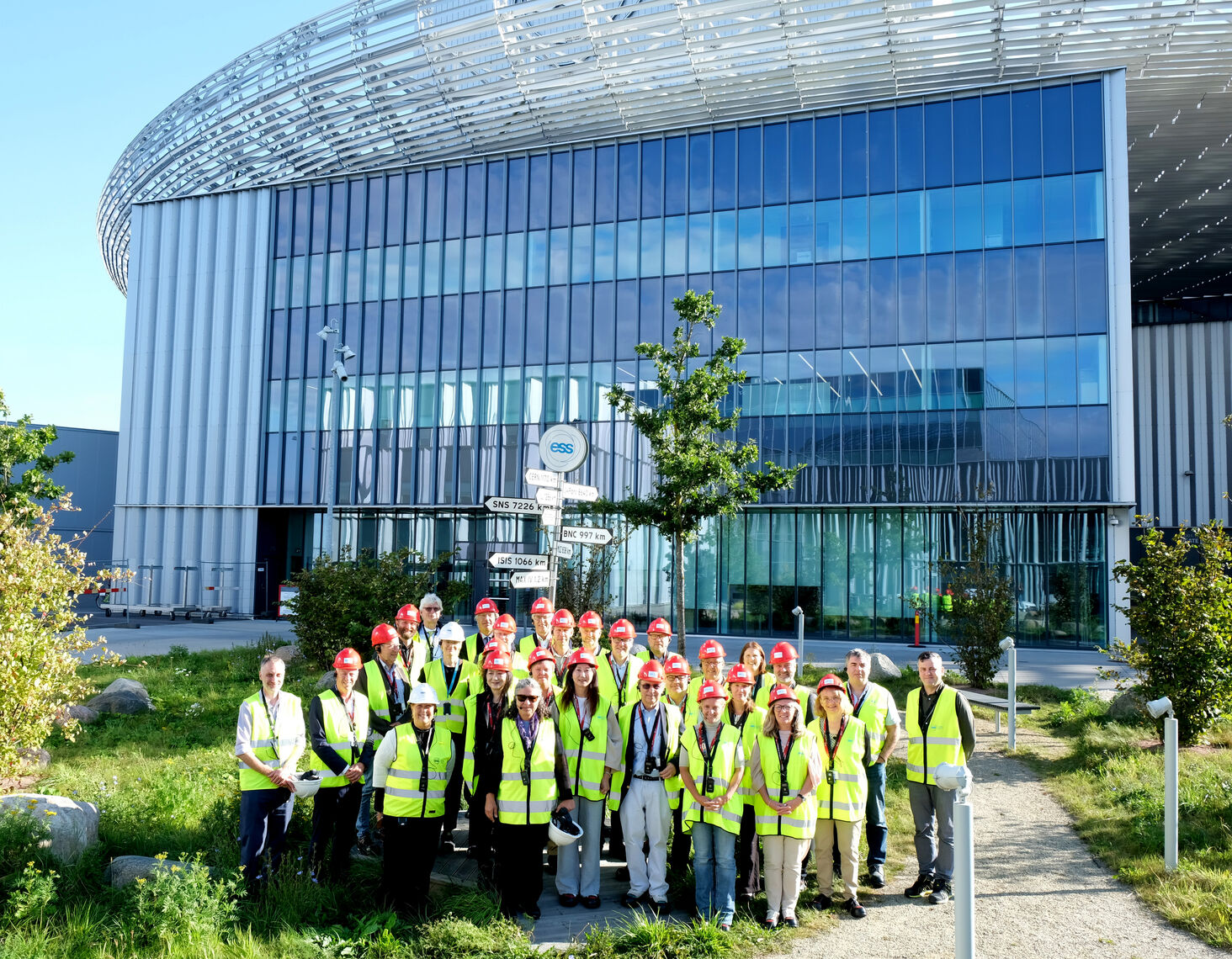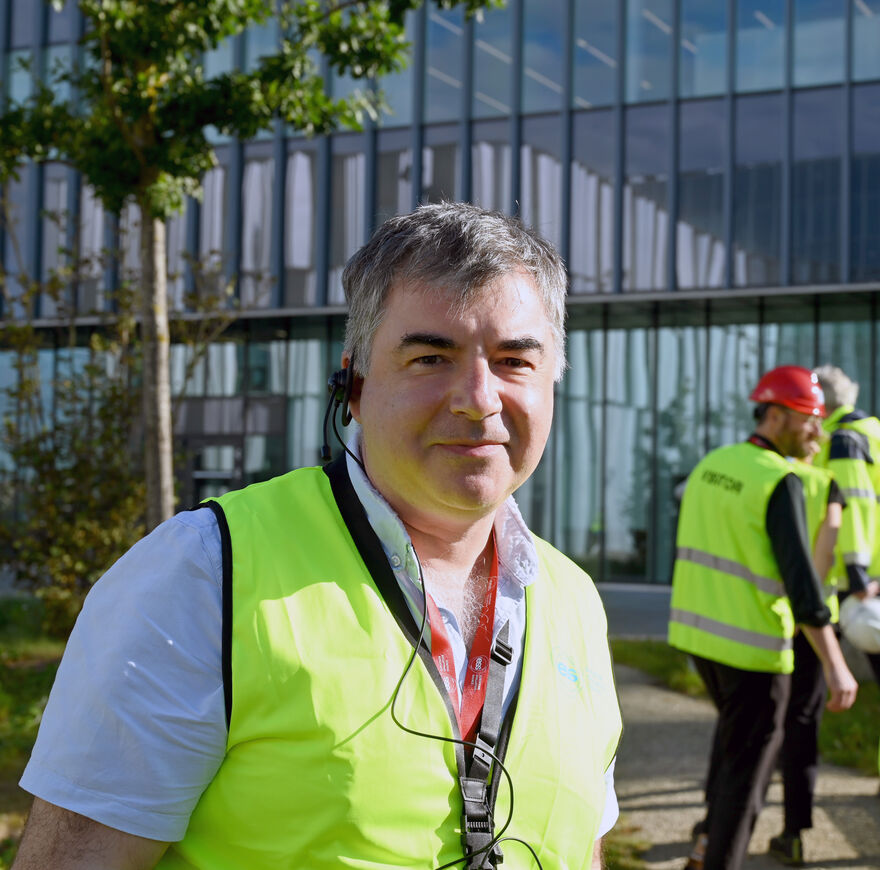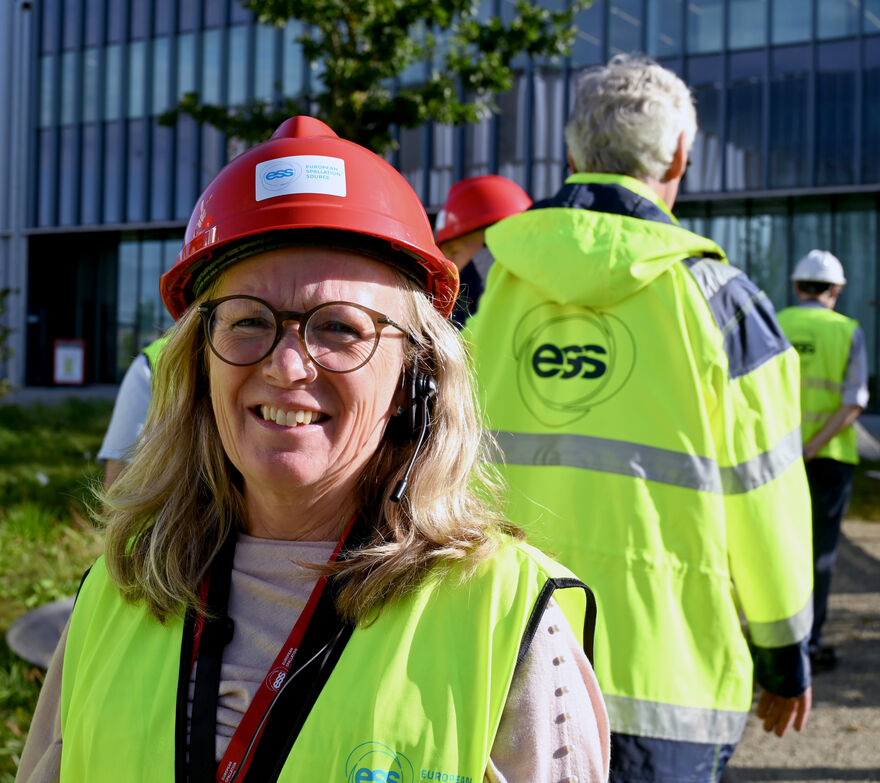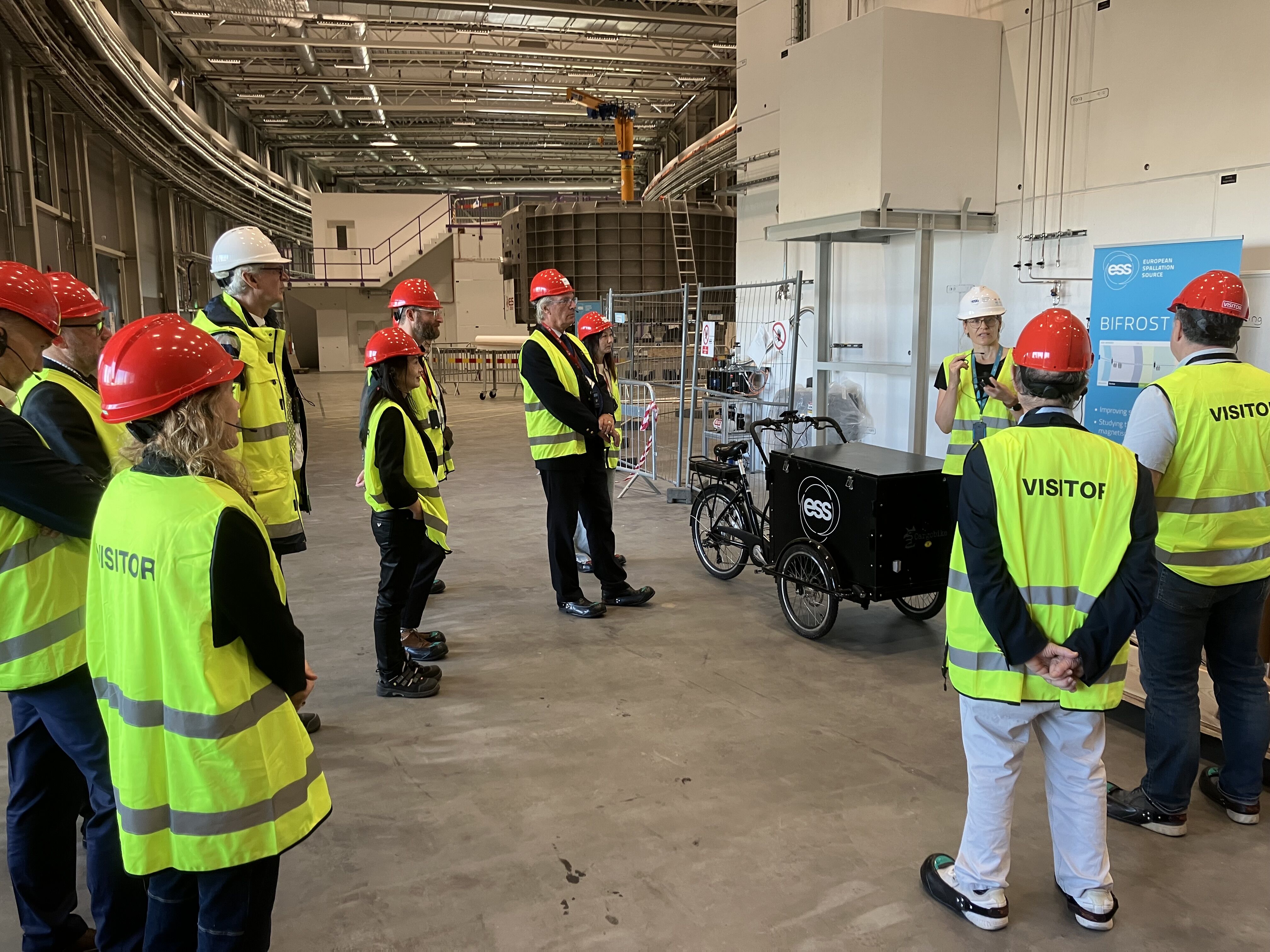
Last week, ESS welcomed esteemed guests from the Wallenberg Initiative Materials Science for Sustainability (WISE), their International Science Advisory Board, and representatives from the Knut and Alice Wallenberg Foundation (KAW). As part of a series of meetings in Lund, the delegation had the opportunity to visit ESS, gain insight into its progress and learn more about the research capabilities the facility will offer once operational.
Among the notable visitors was UK-based physicist Professor Konstantin Novoselov, Nobel laureate in Physics (2010), jointly with Andre Greim, for groundbreaking experiments regarding the material graphene. Professor Novoselov expressed enthusiasm for ESS, stating:
“What sets ESS apart is not just its technical capabilities – it’s the global, collaborative spirit behind its development. Scientists and engineers from across the world are working to design and shape ESS, making it into an international hub for research and innovation. It’s thrilling to think about the possibilities. ESS holds great potential, and once it becomes operational it will attract users from all over the world.”
Joining the visit were several researchers and representatives from prominent institutions such as the Max Planck Institute, UCLA, MIT, Stanford University, and leading Swedish universities. Industry leaders from companies such as ABB and Tetra Pak were also in attendance.
Professor Annika Borgenstam from KTH Royal Institute of Technology in Stockholm, and member of the WISE Board, reflected on the experience:
"It was a very rewarding visit where we explored research results generated through the use of a neutron spallation source, as well as toured ESS and several instrument stations under construction. Truly impressive! This infrastructure is of great importance to materials research and the WISE community, especially from a sustainability perspective given the research it will enable. It is now crucial that Swedish materials researchers who have not yet utilised this type of large-scale infrastructure become aware of the opportunities that will soon be available in Sweden."
Wallenberg Initiative Materials Science for Sustainability (WISE)
Under the vision "A sustainable future through materials science," WISE represents Sweden’s largest-ever investment in materials science. The programme involves major commitments at the country's leading universities and aims to advance materials science research to empower sustainable technologies, ultimately having a positive impact on society. It also seeks to train the next generation of leaders across academia, industry, and society.
The WISE program has seven partner universities: Chalmers University of Technology, KTH Royal Institute of Technology, Linköping University, Luleå University of Technology, Uppsala University, Stockholm University, Lund University, and selected research groups at Karlstad University, Umeå University, and Örebro University.
Through these partnerships with industry and society, WISE aims to promote the transition towards a sustainable society while advancing scientific knowledge in materials science, establishing Sweden as a global leader in the field. The programme is funded by the Knut and Alice Wallenberg Foundation, with a total budget of approximately SEK 3 billion allocated for 2022–2033.
ESS and WISE: A shared mission in materials science
ESS Director General Helmut Schober, who hosted the visit, provided an insightful presentation. Reflecting on the event, Schober noted:
“While preparing for this meeting, I realised how closely aligned our missions are.
WISE is focused on “enabling sustainable technologies with positive impact on our society by understanding, creating, and controlling complex materials,” whereas at ESS, we “endeavour to create positive impact by opening up the world of materials, to expand the frontiers of knowledge and enabling industries to innovate responsibly.”
I am confident that by combining the exciting scientific work supported by WISE with ESS’s exceptional capabilities, we will mutually strengthen each other, leading to truly outstanding advancements that benefit our societies.”



























